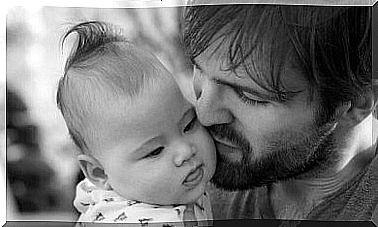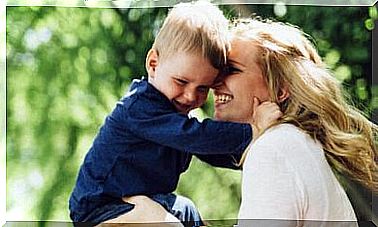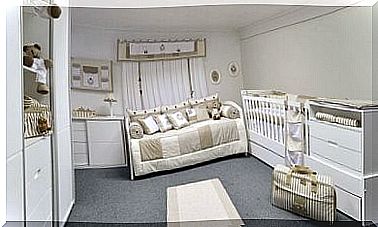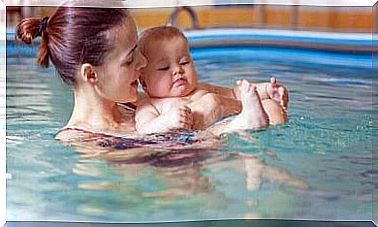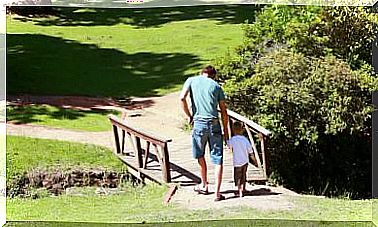Promoting Language Acquisition By Children: 5 Tips
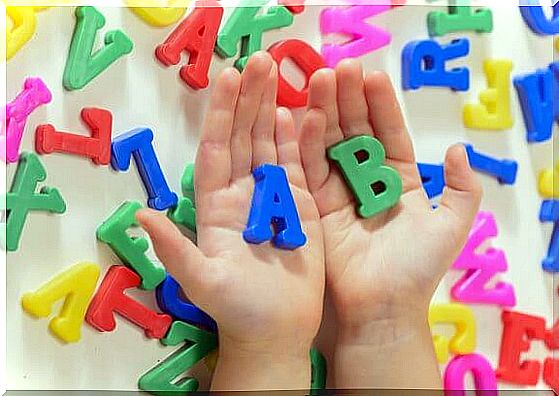
Language is our most important means of communication, which is why it is fundamental to adequately promote the language acquisition of children as early as in the womb and early childhood. Today we have 5 tips for you that can help you with this.
Language acquisition by children
Many mothers are concerned when their child cannot utter a word at an age when others are already speaking. It should not be forgotten that every child has a different rhythm. However, language acquisition by children can also be influenced by various factors.
For example, there may be health problems, meaning that the nervous system or the sense of hearing is not properly developed. A lack of movement control in the face and mouth area could also be responsible.
In addition, the relationship with the adult caregivers plays an important role: the right stimulation promotes communication.
In addition, motivation, interaction and the imitation of elements of language are fundamental. Children learn a great deal from their parents by listening to them.
Promote language acquisition by children
Between 0 and 6 years
Talk to your child even if they are still babbling
At the latest from the birth of the child, you should talk to the child a lot. Even if you think that they don’t understand you and of course they won’t answer you either, you are helping their language acquisition.
Linguistic attention from parents, siblings or other caregivers is essential long before the child can speak for themselves.
It learns to distinguish phonetically objects in its environment. They also get to know the mouth movements of their caregivers and gradually make more and more noises themselves.
You can tell short stories to your child and motivate them to mimic your mouth movements. Also, show them sounds that they can try to reproduce. You can train your oral motor skills together.
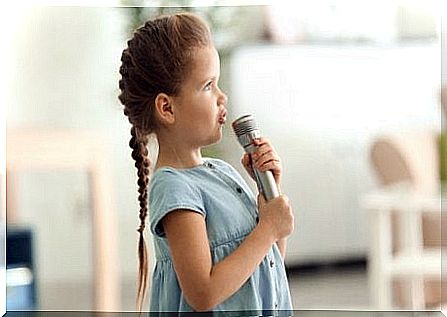
Mimic the sounds your baby makes
When your baby begins to utter and babble noises, it is a good idea to imitate them and look at them. This is how the child begins to communicate. When the adult reacts to it, he feels that he has understood it.
From 6 months
Facial massages
A gentle facial massage stimulates the muscles that are needed for speech. The articulation of sounds requires the interaction of different muscles: over 100 muscles are needed to speak! You can also use the massage to promote the bond with your child.
It also becomes aware of the different parts of its face and hears and sees you speaking.
You can repeat the names of the facial parts several times during the massage so that your little darling can remember the words.
This is a very pleasant and easy way of promoting language acquisition in children.
Breathing exercises for language acquisition by children
Various breathing exercises are also very beneficial in helping children learn language. You learn to breathe out and breathe in and also to blow. Gradually, they can also control the intensity, length and direction of making certain sounds.
Activities that can help children learn languages include games with ping pong balls. Your child will try to blow a ball to make it roll in a certain direction.
Depending on the force applied, it will move faster or slower. Your little darling will have a lot of fun doing it.
Another very fun way to strengthen your breathing is with musical instruments. Try a flute, harmonica, or just a pipe. This teaches children to control the flow of air while blowing. The tone and duration change depending on the intensity.
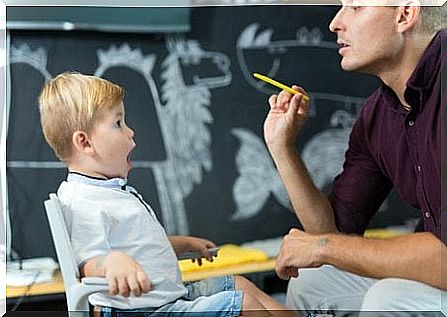
Support and role model
It is particularly important for proper language development that children can imitate the example of their caregivers. Always listen to them respectfully, don’t interrupt them when they speak, and patiently correct possible mistakes without making fun of or criticizing the little one.
You shouldn’t talk negatively about their language development in the presence of your child, as doing so could have the opposite effect and negatively affect their self-esteem.
There are many ways to stimulate children’s language acquisition, but remember that every child has a different rhythm and that this must be respected. But your help and stimulation is of course very important!

